
by World Moms Blog | Apr 14, 2016 | 2016, Asia, China, Maternal Health, Mission Motherhood, To-Wen Tseng
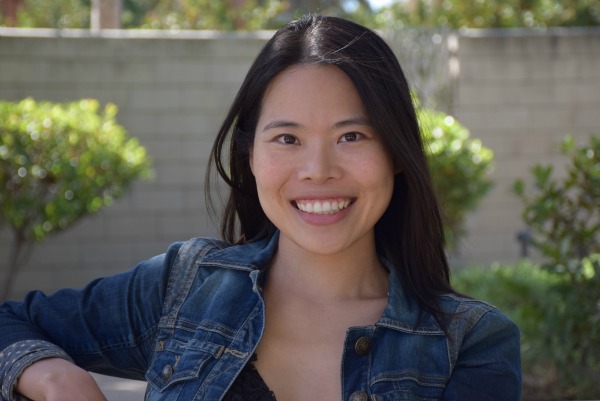
As part of World Moms Blog’s collaboration with BabyCenter’s Mission Motherhood™, our World Moms are writing posts on maternal health around the world. In today’s post, To-wen Tseng shares a story from China about a mother-to-be who had to search for a hospital that would let her breastfeed her baby.
“Seven years ago when Jane Wang was preparing for the birth of her first child in Beijing, she came across a very unexpected obstacle.
During a hospital prenatal interview, she asked about the breastfeeding arrangements for after the baby was born. The staff simply told her, ‘You don’t have to breastfeed. The hospital will arrange high-quality infant formula for your baby.'”
Please read the full post, “Moms in Chinese hospitals told not to breastfeed their babies?” over at BabyCenter’s Mission Motherhood™!
World Moms Blog is an award winning website which writes from over 30 countries on the topics of motherhood, culture, human rights and social good. Over 70 international contributors share their stories from around the globe, bonded by the common thread of motherhood and wanting a better world for their children.
World Moms Blog was listed by Forbes Woman as one of the "Best 100 Websites for Women 2012 & 2013" and also called a "must read" by the NY Times Motherlode in 2013. Our Senior Editor in India, Purnima Ramakrishnan, was awarded the BlogHer International Activist Award in 2013.
More Posts
by Aisha Yesufu | Apr 14, 2016 | 2016, Africa, Awareness, Girls, Nigeria, World Moms Blog, World Motherhood
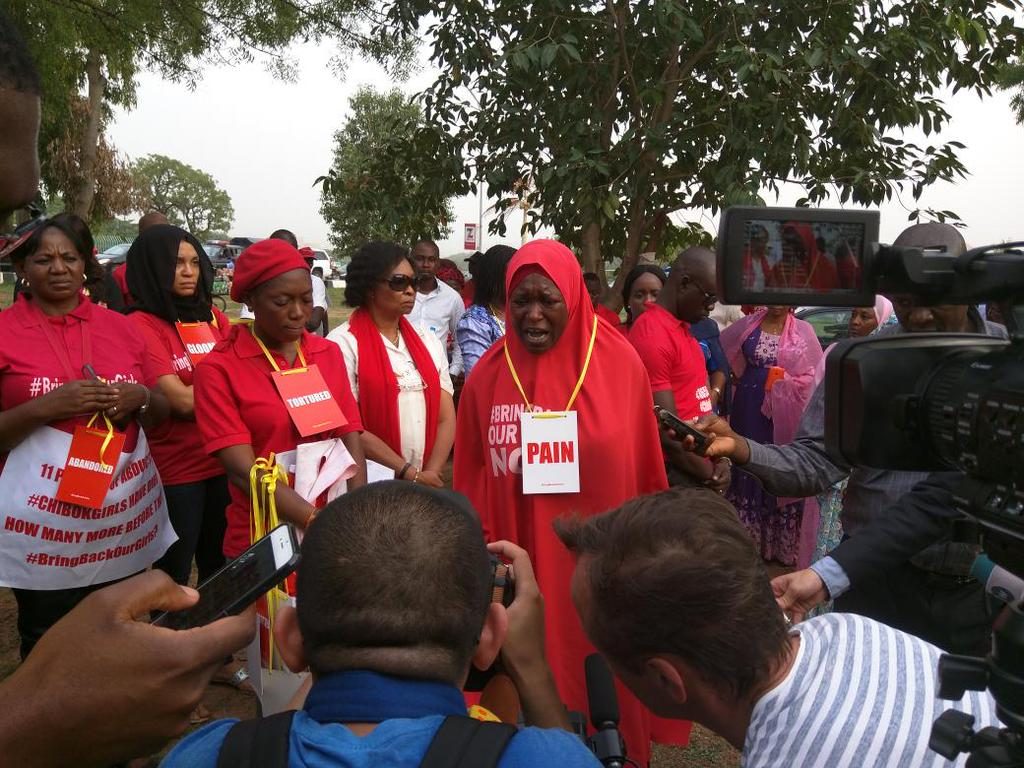
Even as I write this, there is a painful lump in my chest. It has been two years that our #ChibokGirls have been in captivity. I just imagine that the #ChibokParents die a thousand deaths every day thinking of the atrocities being met upon their daughters. Daughters they sent to school to get an education so that they can better their lives.
For two years now the Chibok parents have had to second guess their decision to send their children to school. A story of one of the Chibok mothers broke my heart. She managed to send her daughter to school after she lost her husband, and now she feels she was selfish for wanting her daughter to be educated and be able to help her one day.
What has happened to the Chibok Girls is heartbreaking, and too painful for words. Nothing makes sense to me anymore.
I have put off writing this. It is difficult to acknowledge and accept the fact that our Chibok Girls have spent two years in captivity. With a bleeding heart, I am forced to accept the reality on ground. Our Chibok Girls have been in captivity for 731 days – exactly 2 years, today.
Where is the outrage the world showed two years ago when 276 schoolgirls were abducted from their school where they were writing their final exam? Where is the outrage the world showed when 57 girls had to use various dangerous means to escape? Where is the outrage the world showed when we heard that 219 Chibok Girls were in captivity? Unfortunately, they are still in captivity, exactly two years today.
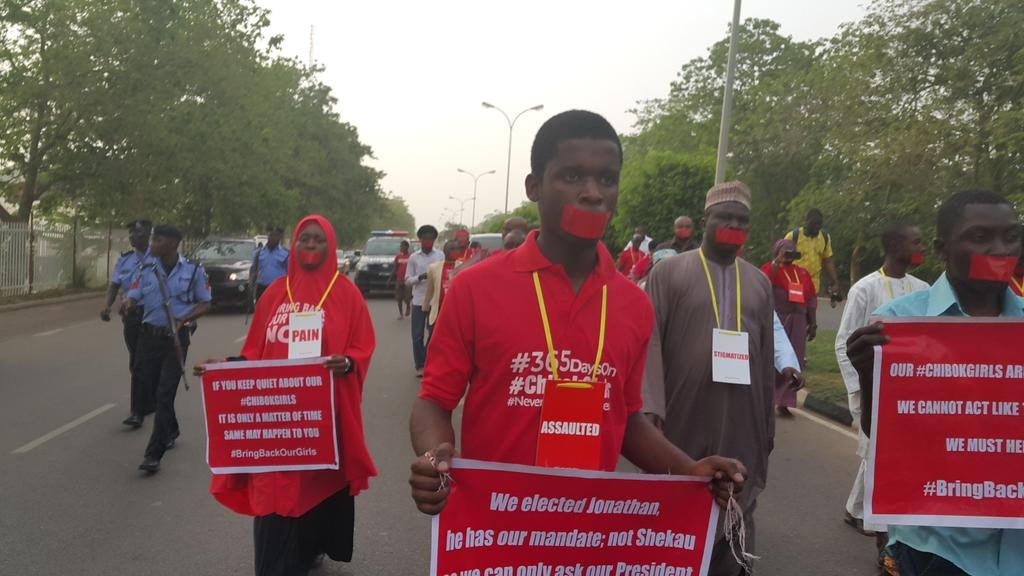
How can the world move on? The Chibok Girls have not been able to move on from the nightmare – not for a moment. They have feared for their lives every second, every minute, every hour, every day for two years.
Where are all the world leaders that promised to help rescue the Chibok Girls? Where are the celebrities that held the sign that said #BringBackOurGirls? The 219 Chibok Girls have not been rescued. Not a single one has been brought back home. Why the silence?
How can we tell the girl child to dare to dream? To aspire? To get an education? How can we tell her this when 219 of her sisters that went to school have been in captivity for two years? What moral justification do we have to ask a child to go to school?
By failing Chibok Girls, we have failed our own children, wherever they are. They wonder in their minds if they would also be silent if they were the ones taken.
We have continuously asked what is the crime of the Chibok Girl? Is it because she is poor? Is it because she dared to get an education? Or is it because she is a Nigerian? Would there have been more outrage and sustained effort to ensure she is rescued if she was from another part of the world?
I think of the Chibok Girls all the time. The horrific tales from those who have escaped or have been rescued have not been palatable. What has become of the girls who one day were laughing and being just girls and the next day were forced into a nightmarish world of being women forced to leave their homes and all that they hold dear?
Do the Chibok Girls even realise that they have spent two years in captivity? Do the Chibok Girls still hope that they will be rescued or will find their way home? Do the terrorists mock our girls, telling them that nobody will come for them? How do our girls cope with the fact that nobody has rescued them? Do our girls still hold onto hope? Indeed #HopeEndures but for how long can a child hold onto hope when they are being brutalised each day?
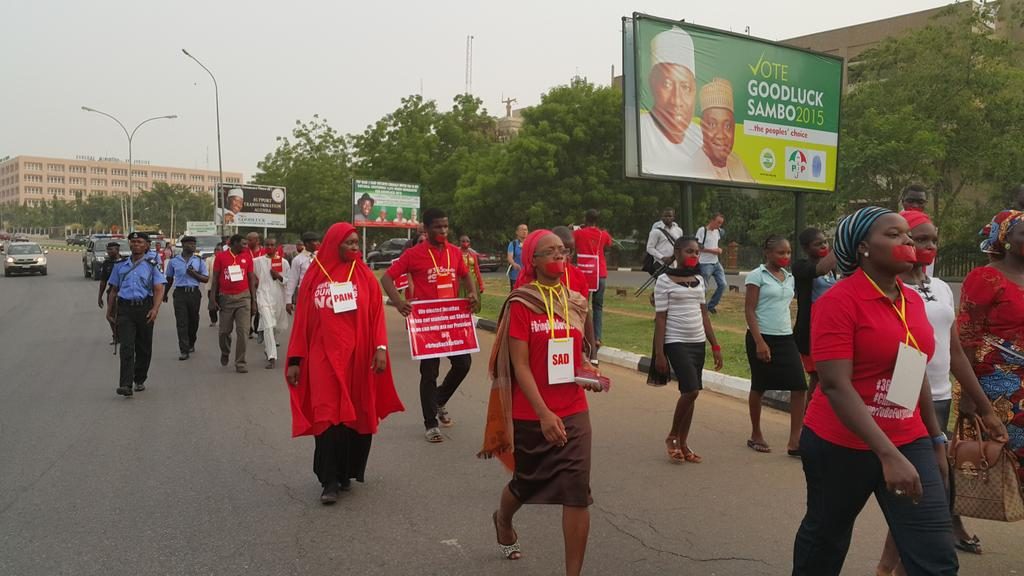
If your daughter was one of the Chibok Girls, what would you do? Have you done the same for the Chibok Girls? A terrorist attack against one is a terrorist attack against all. As long as one is attacked, we all are attacked. We have to fight for each other. When we do nothing, we simply embolden the enemy to keep attacking us. When it happens to another and we stand up for them, the enemy backs off.
It has been 731 days since the Chibok Girls have been abducted, and it has been 716 days that citizens have been demanding their rescue. We have made a vow that we will not stop – not until our girls are back and alive, and #NotWithoutOurDaughters.
We might not have carried the Chibok Girls in our womb, but they are our daughters. We will continue to make demands for their rescue until each and every one is accounted for.
Whatever anyone may think, standing for Chibok Girls is not doing them a favour. It is simply doing the right thing. Rescue for the Chibok Girls is not a privilege, but their right, per the Constitution of the Federal Republic of Nigeria.
World leaders must look at the Chibok Girls as their own. They must adopt them and fight for them as if they were theirs. The Chibok Girls are no longer children of the people from Chibok, neither are they just Nigerian daughters. The Chibok Girls are children of the world, and, therefore, the world must rally together and rescue its daughters from these monsters. These are beings who want to put a blight on humanity. We will hold on to hope knowing that the power of love will always defeat the hatred in them.
We will not allow a group of terrorists to define humanity for us.
The fight for the Chibok Girls is the fight for the soul of humanity. As long as 219 Chibok Girls are in captivity, humanity is in captivity.

This is an original post written for World Moms Blog by Aisha Yesufu in Nigeria.
(All photos courtesy of Aisha Yesufu. #2YearsOn image courtesy of #BringBackOurGirls. )

by Ketakandriana Rafitoson | Apr 13, 2016 | 2016, Africa, Madagascar, World Interviews, World Motherhood
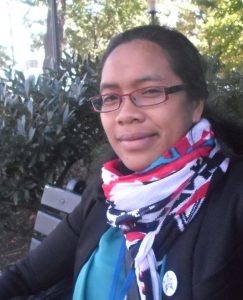
Where in the world do you live? And, are you from there?
I live in and am from Antananarivo, Madagascar’s capital city. Madagascar (the country, not the movie) is a big island located in the Indian Ocean, and is geographically defined as being part of Africa. I have never moved from here, except a few trips abroad. I have done all my studies in Madagascar, and I’m particularly proud of that.
What language(s) do you speak?
I speak Malagasy (our native language), French and English.
When did you first become a mother (year/age)?
I gave birth to my first child, Tony, in 2009, at the age of 28, and then to Hugo in 2011. I was a late mother compared to the national trends; one-third of girls aged 15-19 are known to be mothers in our country.
Are you a stay-at-home mom or do you work?
I am officially working as a legal advisor for a semi-public facility dealing with electricity, but I am also engaged in various not-for-profits and social movements related to democracy and human rights matters. I am at the same time a PhD candidate in political science, which means that I have to work a lot at home – early in the morning, while my loved ones are sleeping.
Why do you blog/write?
I write for sharing my views and experience, and for linking Madagascar to other countries. We are island people and we need to feel that the rest of the world also cares about us, but they won’t until we provide them with the right information. I also write in order to give a voice to the voiceless. There are lots of interesting people – mothers or not – in Madagascar, who cannot access the internet or have a worldwide coverage like this. I commit myself to write on their behalf and share their stories, because they’re part of what we call Humanity and also deserve to be heard.
What makes you unique as a mother?
Frankly speaking, I don’t know! Only my boys can assess me as a mother and I don’t have an appropriate answer to that question. I’m just trying to do my best for my children, especially showing them that there is something beyond money and comfort…. That good behavior matters and that kindness and self-engagement may change lives…
What do you view as the challenges of raising a child in today’s world?
I’m convinced motherhood has always been difficult, now or 100 years ago. But the main challenge for me today is to keep children away from the influence of the media and from the feeling that money rules. We need to find time for inspiring them in a different way and to show them that everything is possible, differently. They are for sure citizens of the world but they need to discover this world with their heart, in a more peaceful and spiritual manner….
How did you find World Moms Blog?
I met Jennifer Burden in Washington, DC, in 2014, during the World Bank and IMF Annual Meetings. She gave me a key holder with the World Moms Blog logo and told me she would love to have a contributor from Madagascar. I was quite busy during these two years but now I’m in and I’d like to thank her for this great opportunity.
This is an original post to World Moms Blog by Ketakandriana Rafitoson, our new contributor from Madagascar.
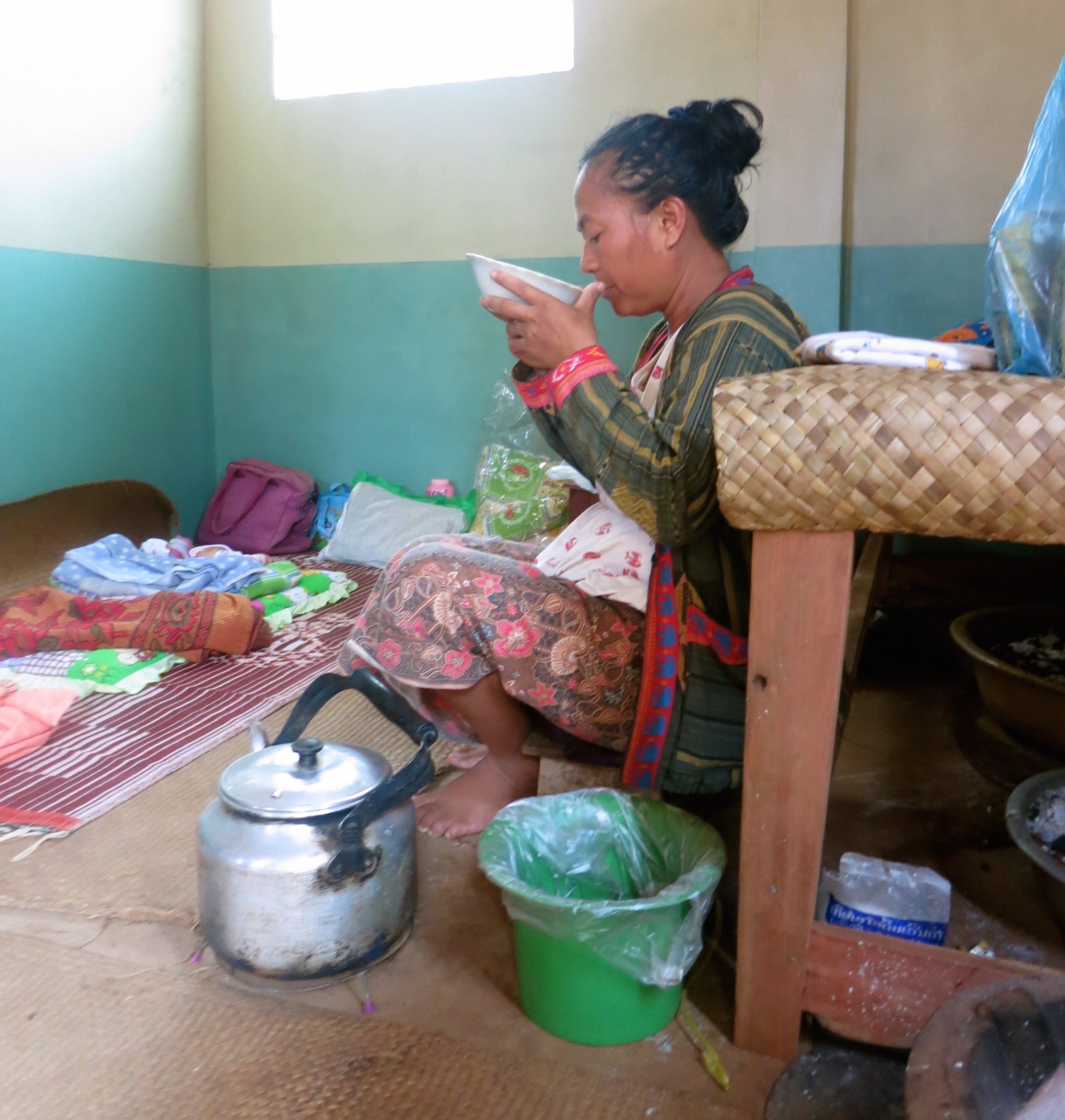
by Kristyn Zalota | Apr 12, 2016 | 2016, Asia, Birthing, Clean Birth Kits, Health, Uncategorized, World Moms Blog, World Voice
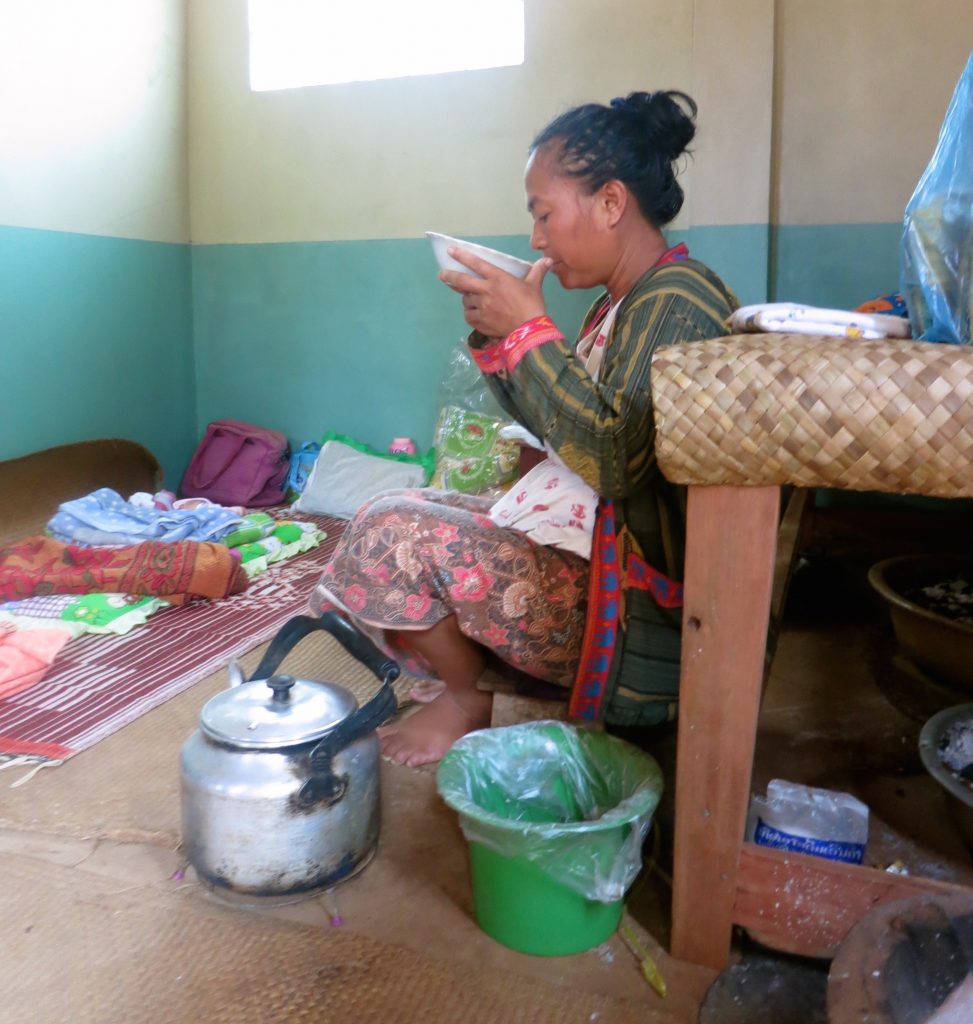
A new mom in Laos Photo Credit: Kristyn Zalota
It’s over 100 degrees Farenheit and I am dripping sweat as we enter the home of a mother who has recently given birth at a Lao hospital using a Clean Birth Kit, supplied by my organization CleanBirth.org. She is wearing a long skirt and hooded sweatshirt. Under the platform bed where she sleeps a clay pot is filled with glowing coals. Her newborn baby sleeps under blankets with mittens on her tiny hands and a knit cap. The mother, sweating profusely, is drinking piping hot herbal tea. She eats chicken four times a day and showers in the hottest water she can tolerate four times a day. Her four older children and husband are nearby, taking care of her and the household while she recovers.
This is a good birth story in Laos where my organization CleanBirth.org works. This mother birthed naturally with a Clean Birth Kit under the watchful eye of a trained midwife. Her traditions were respected and she and baby left the hospital healthy.
A baby needlessly dies.
However, many birth stories in Laos don’t tell the tale of mothers and babies surviving birth. A nurse at a rural clinic told of a 45-year old mother, pregnant with baby #14, who came into the clinic for help during labor. Her membranes had been ruptured for 29 hours and she arrived at the clinic exhausted. After a normal vaginal delivery, the newborn could breastfeed but was weak. He died 9 hours after birth, likely of an infection. The clinic does not have IV antibiotics, so the nurses were powerless to fight the infection.
World Moms help CleanBirth.org empower nurses.
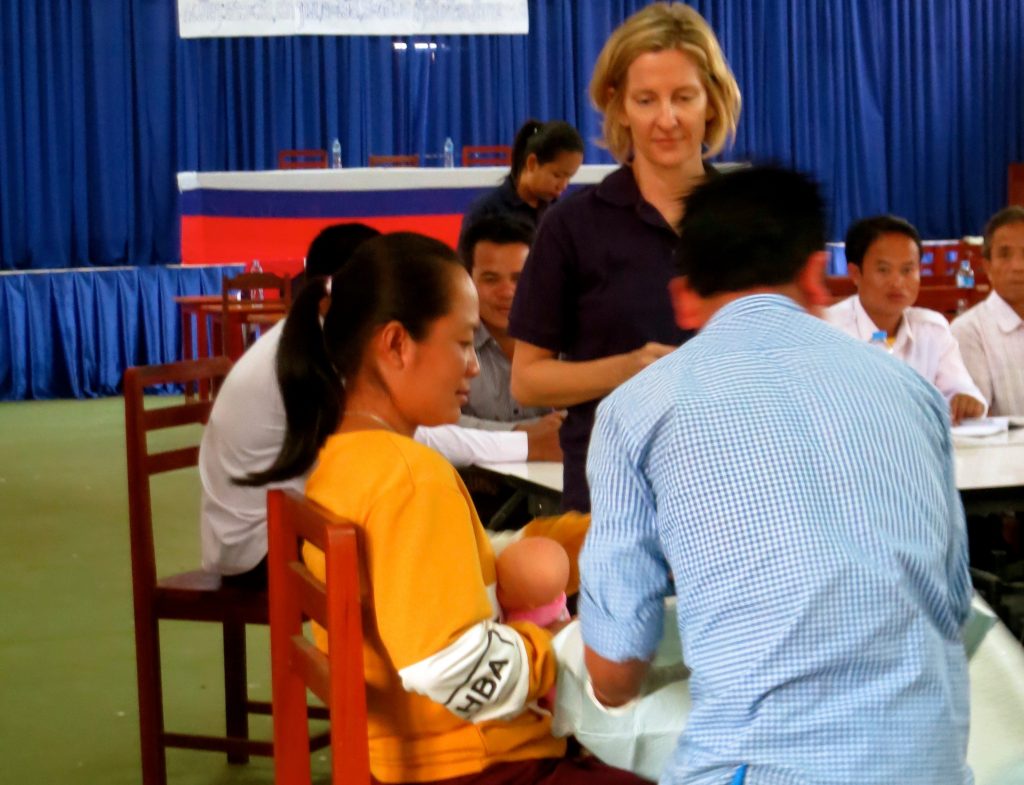
CleanBirth.org Founder Kristyn Zalota training nurses in Laos
My visit to Laos last month was my fifth training trip with CleanBirth.org, the organization I started in 2012 to empower women in Laos to have safer births. Since 2012, we have provided 5,000 Clean Birth Kits and training for over 250 nurses.
This March, with my Lao partner organization ACD, we trained 71 nurses in the use and distribution of Clean Birth Kits and the WHO’s Essentials of Newborn Care.
Five of those nurses were fully funded by World Moms Blog donors, who gave $1,100 during our February fundraising campaign.
Our twice-annual trainings give nurses new skills and confidence. We also supply them with as many birth kits as they need throughout the year.
The trainings and subsequent improvement in care in the 31 clinics we serve, has led my Lao partner organization to ask that we fund an additional 13 clinics and a local hospital. When we visited the local hospital, midwives there told us that of the 50 births they see per month, 35-40 mothers bring with them our ayzh Clean Birth Kits — which they received at their local clinic. The midwives praised the convenience/effectiveness of the kits. They asked CleanBirth.org to provide around 10-15 kits per month directly to their hospital for mothers who don’t have a kit. This we will do.
It is a huge endorsement of our program to have our local partner and a hospital asking to expand our work to new areas. This means that they are seeing the benefits and that locals are deciding the future direction of the project. They are in charge.
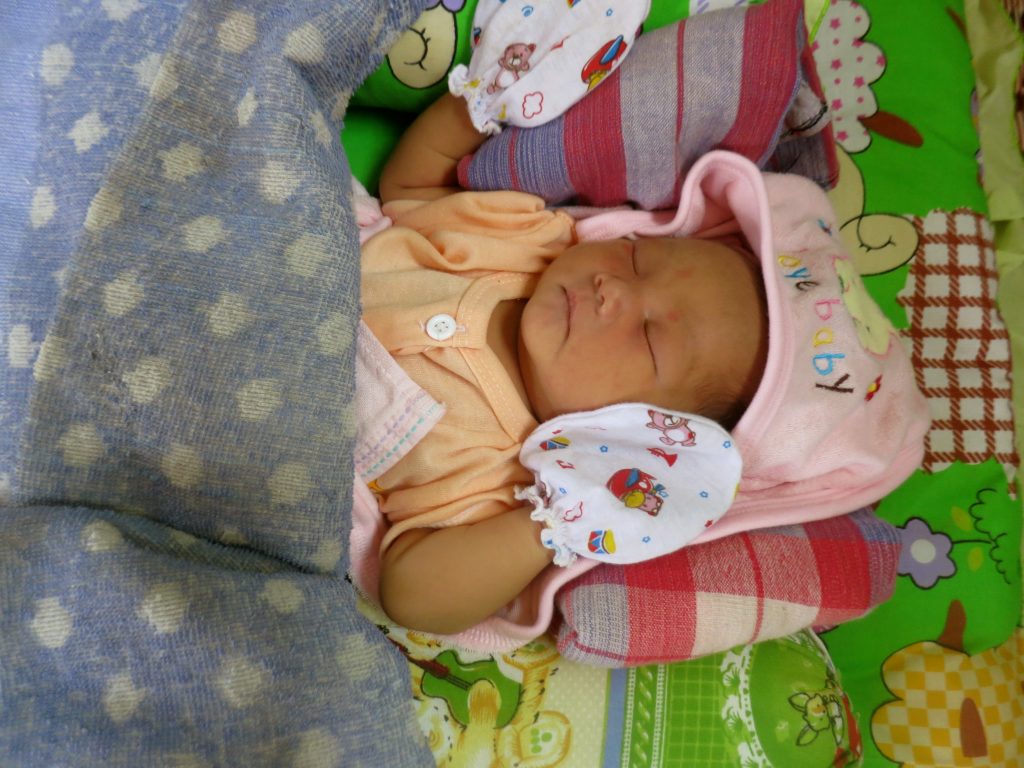 My role as founder of CleanBirth.org will be to continue finding funding for kits and training. For just $5 we can prevent an infection like the one mentioned above. If you’d like you join our small but mighty effort please donate www.cleanbirth.org/donate.
My role as founder of CleanBirth.org will be to continue finding funding for kits and training. For just $5 we can prevent an infection like the one mentioned above. If you’d like you join our small but mighty effort please donate www.cleanbirth.org/donate.
Thank you World Moms for all of your support!
Kristyn brings her years of experience as an entrepreneur and serial volunteer to CleanBirth.org. She holds a MA, has run small businesses in Russia and the US, and has volunteered in Nicaragua, Costa Rica, Thailand, Cambodia, Laos and Uganda on projects related to women’s empowerment.
After having children, Kristyn became an advocate for mothers in the US, as a doula and Lamaze educator, and abroad, as the Founder of CleanBirth.org. She is honored to provide nurses in Laos with the supplies, funding and training they need to lower maternal and infant mortality rates in their villages.
More Posts

by Loren Braunohler | Apr 11, 2016 | 2016, Europe, Expat Life, Life Balance, Parenting, Poland, SAHM, School, Stay-At-Home Parent, World Motherhood, Younger Children

Indulging in ice cream on a hot day in Krakow’s main market square
Free time. Sometimes I feel like I would give an arm and a leg for a little bit of free time. To have lunch with friends. To go to the gym. To take a nap. To read. To go to the grocery store all by myself. To do nothing.at.all. I knew when I signed up to be a stay-at-home parent that I would have little time to myself. I also knew that with my husband’s job, which has us moving to a different country every two or three years, that having a set of grandparents (or two) close by to provide some regular child-free relief was not going to happen. In our journey across the globe, we’ve been fortunate enough to find our place and develop our circles of friends. The expat communities in Thailand and Poland have been good to us, and we know that if we have an emergency, we can call on the support of our friends to help us out with the kids if need be. That is the way it works when you are abroad. You help each other out. And I am so grateful for these friends and their support.
But, still, when you are a stay-at-home parent, particularly not near close friends and family, you spend an extraordinary amount of time with your kids. This is of course exhausting, but also wonderful. You get to witness every little new thing they discover, the days their mood begins to change and they develop new facets of their personality, and watch the bond between siblings grow (yes, a time does come when they stop fighting constantly). Your life is so wrapped up in theirs that it is hard to imagine a time when it will no longer be that way. Their every little move is known to you, and yours to them.

Enjoying waffles while visiting the Easter markets in Krakow
But, one day they will go off to school – all of them (in my case, three) – and then, you will actually have free time. Think about that for a minute. You, without needing to feel guilty, will be able to do what you want to do – whether that is going back to work part-time or full-time, or taking on a new hobby or two, or just enjoying the peace and quiet for awhile. This is your time. So what will you do?
I am not going to lie. I have about 18 things on my plate that I would like to do when the kids start school. I’d like to start writing more often and for more publications, I would like to write another children’s book (and hope that it will be successfully published this time). I would like to train for and run a marathon. I would like to learn to swim and bike correctly and try my hand at a triathlon. I would like to become a good photographer. I would like to get back to writing thank you notes, planning ahead of time, and reading. I would like to cook and not be rushed. I would like to explore the city – take tours, visit the non-kid friendly museums, mosey about Krakow’s beautiful old market square.
So yea, it’s safe to say I’ve thought about what I will do when the kids go to school. But sometimes I wonder if the thrill of free time will peter out quickly. The reason I stopped working five years ago was to stay at home with the kids.
Will I be able to feel that my life is fulfilling when they are no longer at home, nor fully dependent on me? Will what I plan to do with my time be “enough?” Will it fill the void of not having them around? Will my time be useful? And if so, to whom will it be useful?

Enjoying a morning of fun at the Engineering Museum in Krakow
I have talked to other mothers who have the same concern. One friend in particular who just went through the process of sending her boys off to school for the first time (she home-schooled them previously) has struggled with feeling whether what she is doing in her free time “enough?” When your role – for years – is to raise sweet little beings into strong, confident, and loving children, and then one day the time you have to do that is cut back significantly – what will that feel like? Will it be a blow? Will it be a relief? Will it be bittersweet?
At a minimum, it will be an adjustment. And while I don’t have any answers, yet, it is just one more milestone on this path of parenthood.
Are you a stay-at-home parent? How have you adjusted, or how will you adjust, to your kids going to school?
p>This is an original post to World Moms Blog by Loren Braunohler of Poland.












 My role as founder of CleanBirth.org will be to continue finding funding for kits and training. For just $5 we can prevent an infection like the one mentioned above. If you’d like you join our small but mighty effort please donate
My role as founder of CleanBirth.org will be to continue finding funding for kits and training. For just $5 we can prevent an infection like the one mentioned above. If you’d like you join our small but mighty effort please donate 











